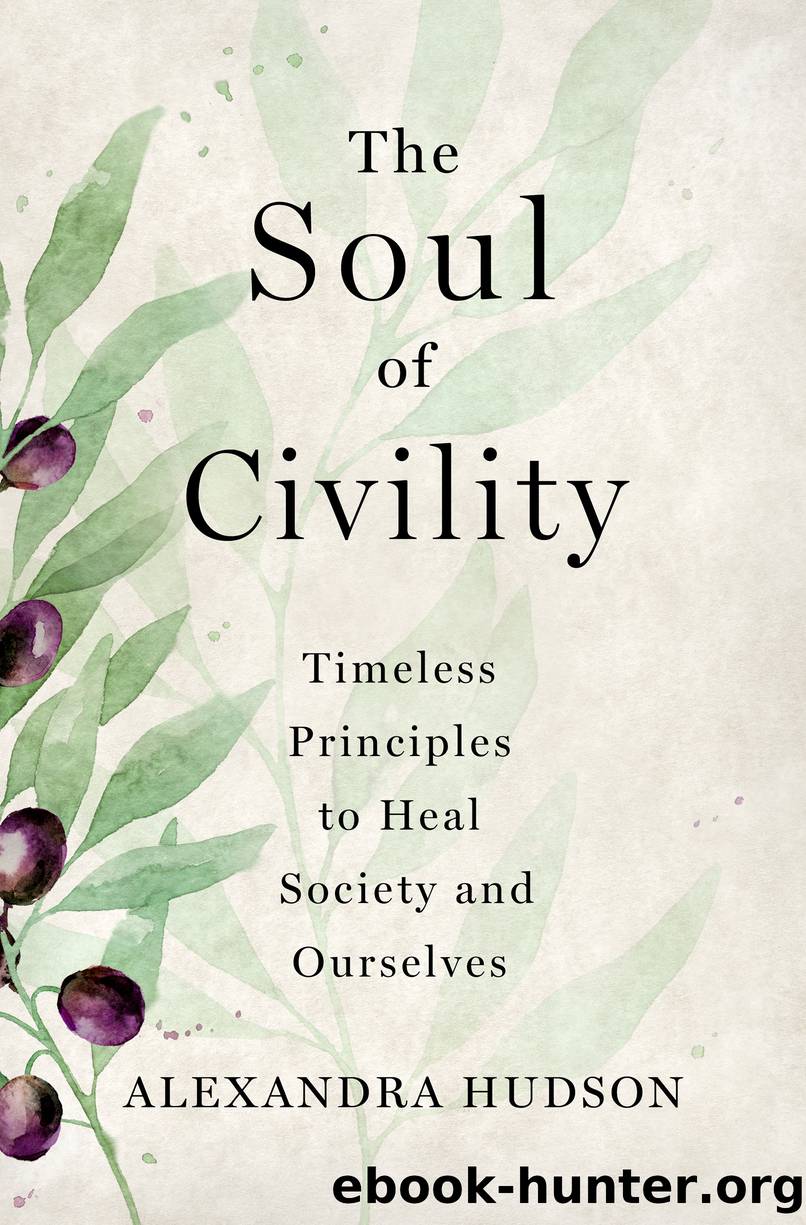The Soul of Civility by Alexandra Hudson

Author:Alexandra Hudson
Language: eng
Format: epub
Publisher: St. Martin's Publishing Group
Recognizing Difference and Equality: The Myth of Republican Etiquette?
Jeffersonâs simplified diplomatic protocol was unpopular with foreign dignitaries, as Anthony Merry showed us. But domestic custodians of tradition and self-appointed etiquette experts also despised it. While serving as a confidant to Ulysses S. Grant during the Civil War, De Benneville Randolph Keim gained intimate familiarity with the inner workings, rituals, and ceremonies that governed the United States government. In 1889, he published the definitive work on the topic, Hand-book of Official and Social Etiquette and Public Ceremonials at Washington. In this work, Keim took direct aim at Jeffersonâs pell-mell etiquette, calling it âunjust and in bad taste.â Keim praised James Madison, who finally âput an end to the Jeffersonian code, and restored the dignified social institution of the American school of the administrations of Washington and Adams.â12
In his book, Keim left no aspect of life in Americaâs capital untouched. Rules about state dinners, the use of diplomatic titles, the proper distribution of personal calling cards, the appropriate means of mounting and dismounting a horse, and how to be a good conversationalist are all covered. Knowing his audience would be skeptical of a list of fusty etiquette rules, Keim addressed the elephant in the room from the outset. âThere are many who deride food manners as antagonistic to the spirit of liberty,â he began. âAnd while it is not essential to imitate the forms of pageantry which invest royalty, it is possible to observe the recognized rules of decency, if not refinement and culture, without being aristocratic.â13
Keim argued that treating others with basic respect and decency was the culmination of our nationâs founding ideals of human equality. Our nationâs highest offices were open to all, not merely those of wealth or noble lineage. Practicing a basic civility with everyoneâor âgenuine politenessâ instead of mere âsplendor of outward formsââwas a way that we could live up to our ideals, and ensure the general welfare of society. By reviving the timeless principles of civility and deploying them toward those we meet, we can each live out our founding ideal of equality, too.
It is not empty gesticulations nor the blandishments of complimentary epithets that constitute good manners, but dignity tempered with freedom, reserve mingled with affability, and conversation softened with geniality and enlivened with wit.
âDe Benneville Randolph Keim, nineteenth-century journalist and etiquette writer
Download
This site does not store any files on its server. We only index and link to content provided by other sites. Please contact the content providers to delete copyright contents if any and email us, we'll remove relevant links or contents immediately.
The Lost Art of Good Conversation by Sakyong Mipham(2126)
How We Talk by N. J. Enfield(1957)
F You Very Much by Danny Wallace(1710)
All-In (The Gamblers Book 1) by Sarah Curtis(1515)
How To Walk In High Heels: The Girl's Guide To Everything by Morton Camilla(1348)
The Art of Communicating by Thich Nhat Hanh(1250)
Botswana--Culture Smart! by Michael Main(1238)
Men and Manners by David Coggins(1121)
The Essentials of Business Etiquette by Barbara Pachter(1085)
That's Not What I Meant! by Deborah Tannen(1084)
Secrets of the Southern Belle by Phaedra Parks(1069)
Colloquial Hindi by Bhatia Tej K(1062)
GQ How to Win at Life by Charlie Burton(967)
50 Things Every Young Gentleman Should Know (GentleManners) by John Bridges & Bryan Curtis(959)
Would It Kill You to Stop Doing That: A Modern Guide to Manners by Henry Alford(957)
The Leader Phrase Book by Alain Patrick(955)
Etiquette in Society, In Business, In Politics, and at Home by Emily Post(948)
GQ How to Win at Life: The expert guide to excelling at everything you do by Burton Charlie(939)
Treating People Well by Lea Berman & Jeremy Bernard(922)
